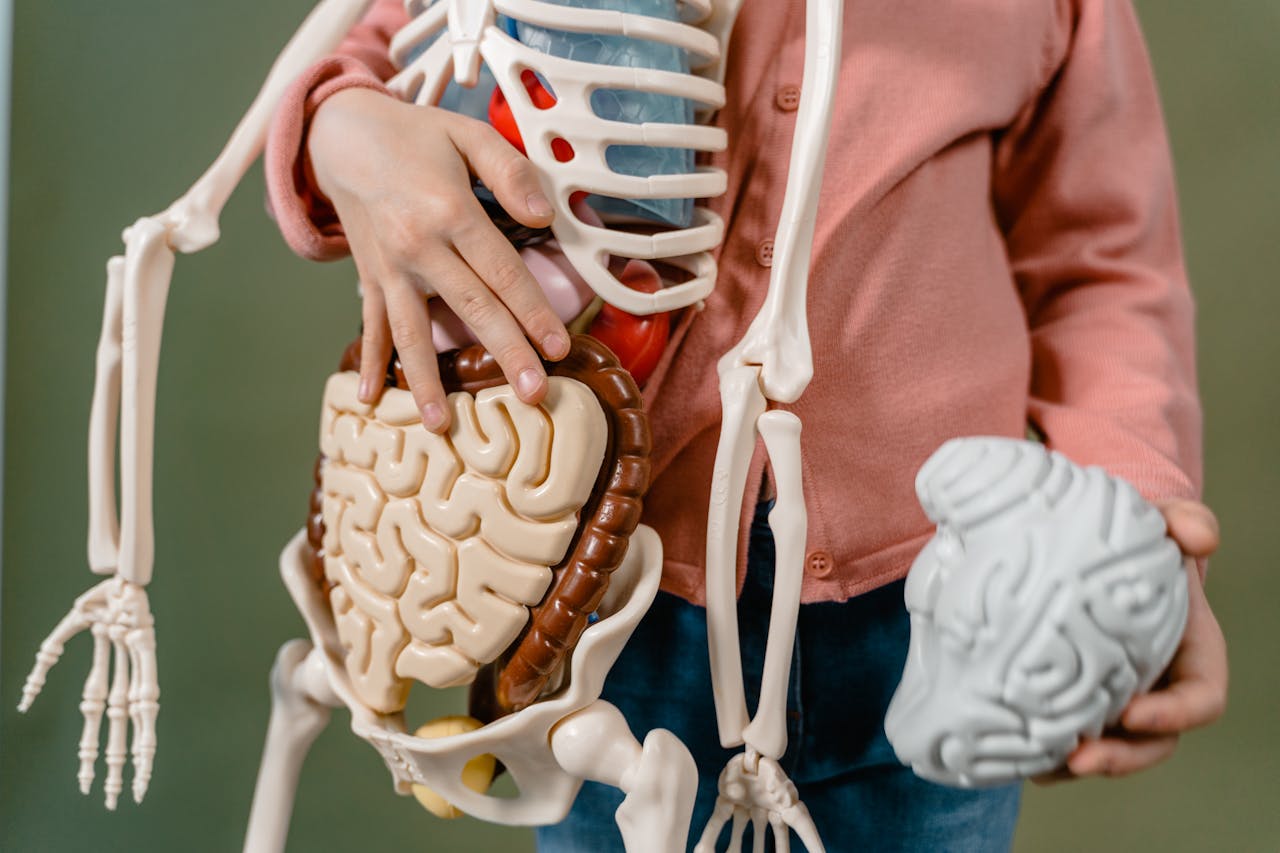Beneath the surface of our everyday lives, an unseen battle rages within our digestive systems. The delicate balance of bacteria residing in our gut has far-reaching implications, influencing not only our physical health but also our mental well-being. Imagine the possibility that the bacteria in your gut could be shaping your thoughts, moods, and even your risk of developing serious mental health conditions.
This revelation is not merely a theory but is supported by emerging scientific research. Studies have uncovered that disruptions in our gut microbiome can contribute to anxiety, depression, and even cognitive decline. As you delve deeper, you’ll uncover the surprising ways in which gut bacteria communicate with the brain, potentially altering behavior and mood.
What Is the Gut Microbiome and Why Is It Important?
In recent years, the connection between gut health and mental wellness has garnered significant attention, with studies revealing that gut bacteria play a crucial role in our overall well-being. The gut microbiome, comprising approximately 100 trillion microorganisms and 500 known bacterial species, is an intricate ecosystem that profoundly impacts our health. In fact, there are ten times more bacterial cells in our bodies than human cells, making us more bacterial than human.
The significance of gut bacteria cannot be overstated. These microorganisms affect our nervous, hormonal, and immune systems and are integral to numerous bodily functions, including the digestion of food and production of vitamins. Consequently, the composition of these bacteria can have a profound influence on both our physical and mental health.
An imbalance of healthy and unhealthy bacteria in the digestive system can lead to various health issues, including gut bacteria overgrowth. This condition can affect how we feel physically and mentally, contributing to symptoms of depression and dementia. Research has shown that an overgrowth of harmful bacteria in the gut can disrupt the balance required for optimal brain function, leading to cognitive decline and mood disorders. [1]

What Links Your Gut to Your Mood?
Recent studies have provided compelling evidence that our gut bacteria, or microbiome, have a profound influence on mental health. The gut-brain connection is a critical area of research that explores how the trillions of microorganisms residing in our digestive tract can affect our behavior, thoughts, and mood.
The Role of Neurotransmitters
One of the key mechanisms through which gut bacteria influence mental health is the production of neurotransmitters. Neurotransmitters are chemical messengers that transmit signals across nerve cells, playing crucial roles in regulating mood, cognition, and behavior. For instance, certain gut bacteria can produce serotonin, dopamine, and gamma-aminobutyric acid (GABA), which are essential for maintaining mental well-being. Studies have shown that individuals with depression often have altered levels of these neurotransmitters, suggesting a direct link between gut health and mood disorders. [2,3]
Research Findings
A study by microbiologist Jeroen Raes and his team at the Catholic University of Leuven in Belgium found that the gut microbiome of individuals with depression lacks specific strains of bacteria, such as Coprococcus and Dialister. These bacteria are capable of producing neurotransmitters, and their absence may contribute to the symptoms of depression. Another study demonstrated that transplanting gut microbiota from depressed patients into healthy animals induced depression-like behaviors, further supporting the role of gut bacteria in mental health. [4.5]
The Vagus Nerve: A Communication Highway
The vagus nerve, the body’s longest nerve, runs from the brainstem to the lowest part of the intestines, acting as a communication highway between the gut and the brain. This nerve is thought to transmit signals from gut bacteria to the brain, influencing mental health. Research has shown that stimulating the vagus nerve can have antidepressant effects, highlighting its significance in the gut-brain connection. [4]
Implications for Mental Health Treatment
Understanding the gut-brain connection opens up new possibilities for treating mental health disorders. By targeting the gut microbiome, it may be possible to develop novel therapies for conditions like depression and anxiety. For example, the use of psychobiotics—probiotics specifically designed to improve mental health—shows promise in early research. These therapies aim to introduce beneficial bacteria into the gut to restore balance and improve mental well-being. [4]

Modern Lifestyles and Gut Dysbiosis: What’s the Link?
An imbalance of gut bacteria, also known as gut dysbiosis, can have far-reaching effects on our health. This condition is often caused by various factors related to our modern lifestyle, such as poor diet, stress, and the overuse of medications. Understanding these causes is essential for maintaining a healthy gut microbiome and preventing associated health issues, including depression and dementia.
Diet and Its Impact on Gut Health
One of the primary causes of gut dysbiosis is diet. A typical Western diet, high in processed foods, sugar, and unhealthy fats, can significantly alter the composition of gut bacteria. Studies have shown that such diets reduce the diversity of beneficial bacteria and promote the growth of harmful bacteria. For instance, a high-fat diet has been linked to changes in the gut microbiome that promote obesity and metabolic complications. These dietary patterns disrupt the balance of gut bacteria, leading to inflammation and impaired gut barrier function, which can subsequently affect mental health. [6,7]
The Role of Stress
Chronic stress is another significant factor contributing to gut dysbiosis. Stress can alter gut motility, increase intestinal permeability, and change the composition of the gut microbiota. These changes can create an environment where harmful bacteria thrive while beneficial bacteria diminish. Stress-induced dysbiosis has been associated with various health issues, including anxiety and depression, underscoring the importance of stress management for maintaining gut health. [8]
Medications and Antibiotics
The use of certain medications, particularly antibiotics, can also disrupt the balance of gut bacteria. Antibiotics are designed to kill bacteria causing infections, but they do not distinguish between harmful and beneficial bacteria. As a result, antibiotic use can lead to a significant reduction in the diversity of gut bacteria, creating an opportunity for harmful bacteria to dominate. Overuse of antibiotics has been linked to long-term changes in the gut microbiome and an increased risk of chronic diseases. [7,8]
Environmental Factors
Environmental factors, including exposure to pollutants and chemicals, can also impact gut health. These factors can alter the gut microbiome, leading to dysbiosis. Additionally, lifestyle choices such as smoking and lack of physical activity have been shown to negatively affect the composition of gut bacteria, contributing to various health problems.
Steps to Heal Your Gut and Boost Your Brain Health
Improving gut health is essential for overall well-being, particularly for mental health. Here are some comprehensive steps to heal your gut and support your mental health:
Consume Probiotics in Food and Supplement Form
Probiotics are beneficial bacteria that can help balance your gut microbiome. Studies have shown that consuming probiotics can reduce symptoms of depression and anxiety. For instance, strains like Bifidobacterium and Lactobacillus have been found to improve mood and reduce stress in both animal and human studies. Mice treated with Bifidobacterium breve showed increased mobility and reduced stress, highlighting the positive impact of these probiotics on mental health.
Probiotic supplements can be a convenient way to increase beneficial bacteria. Additionally, incorporating probiotic-rich foods into your diet can also be effective. Foods like yogurt, kefir, sauerkraut, kimchi, and kombucha are rich in probiotics and can help promote a healthy gut. Research suggests that diets high in these foods can significantly improve mental well-being by enhancing the gut microbiome.
Feed the Good Bacteria with Prebiotics and Resistant Starch
Prebiotics are non-digestible fibers that feed beneficial bacteria in your gut, helping them to thrive. Foods rich in prebiotics include sweet potatoes, onions, garlic, asparagus, and whole grains. Resistant starch, found in foods like green bananas, oats, and cooked and cooled potatoes, also acts as a prebiotic, supporting gut health.
Studies have shown that prebiotics can reduce cortisol levels, a key stress hormone, and promote the growth of beneficial bacteria. This, in turn, can lead to improved mental health by supporting the production of neurotransmitters like serotonin and GABA, which are crucial for mood regulation. [6,7]
Avoid Unnecessary Antibiotics
While antibiotics are essential for treating bacterial infections, their overuse can harm the gut microbiome by killing both harmful and beneficial bacteria. This disruption can lead to a decrease in microbial diversity and an increase in harmful bacteria, potentially contributing to mental health issues such as depression and anxiety.
Research has shown that the overuse of antibiotics can lead to long-term changes in the gut microbiome, affecting both physical and mental health. It’s crucial to use antibiotics only when necessary and to consider taking probiotics after a course of antibiotics to help restore the balance of gut bacteria.
Stress Management
Chronic stress can negatively impact gut health by altering gut motility and increasing intestinal permeability. Stress management techniques such as mindfulness, meditation, yoga, and regular physical activity can help reduce stress levels and support a healthy gut. Studies have shown that stress reduction can improve the composition of the gut microbiome and, consequently, mental health.
Maintain a Healthy Diet
A diet rich in fruits, vegetables, whole grains, lean proteins, and healthy fats can support a healthy gut microbiome. Avoiding processed foods, excessive sugar, and unhealthy fats can prevent gut dysbiosis. Research indicates that diets high in these nutrient-dense foods can enhance microbial diversity and promote the growth of beneficial bacteria, supporting both gut and mental health.
My Personal RX on Keeping Your Gut and Mind Healthy
As a doctor, I understand the crucial connection between gut health and mental well-being. Here are my top recommendations to help you maintain a balanced gut and a resilient mind:
- Diverse Diet: Ensure your diet includes a variety of plant-based foods. Aim for at least 30 different types of plants each week to promote a diverse microbiome and support overall gut health.
- Incorporate Fermented Foods: Regularly consume fermented foods like yogurt, kefir, sauerkraut, and kimchi. These are rich in probiotics, which help maintain a healthy balance of gut bacteria.
- Prebiotic Foods: Include prebiotic-rich foods such as garlic, onions, asparagus, and bananas in your meals. These foods feed the beneficial bacteria in your gut, supporting a healthy microbiome.
- Stay Hydrated: Drinking plenty of water aids digestion and nutrient absorption, ensuring your gut stays healthy and well-functioning.
- Empower the Gut-Brain Axis: Consider adding my groundbreaking MindBiotic supplements to your routine for comprehensive digestive health support, enhanced cognitive function, and effective stress and mood management.
- Practice Mindful Eating: Take your time to eat slowly and chew thoroughly. This can improve digestion and reduce bloating, making meals a more pleasant experience.
- Manage Stress: Incorporate stress-reducing practices such as meditation, yoga, or deep breathing exercises. Managing stress is vital for maintaining a healthy gut-brain connection.
- Regular Physical Activity: Engage in regular exercise like walking, cycling, or yoga. Physical activity supports a healthy digestive system and promotes a balanced gut microbiome.
- Educate Yourself: Learn more about the intricate relationship between your brain and your gut with insights from my latest book Heal Your Gut, Save Your Brain. Understand the science behind the gut-brain axis and adopt a holistic approach to improving your gut health and mental health. Pre-order it now.
- Healthy Sleep Habits: Ensure you get adequate sleep as it plays a significant role in gut health and overall well-being. Poor sleep can disrupt the gut microbiome and negatively affect mental health.
Sources:
- Clapp, M., Aurora, N., Herrera, L., Bhatia, M., Wilen, E., & Wakefield, S. (2017). Gut microbiota’s effect on mental health: The Gut-Brain axis. Clinics and Practice, 7(4), 987. https://doi.org/10.4081/cp.2017.987
- Links between gut microbes and depression strengthened. (2019). Nature, 566(7742), 7. https://doi.org/10.1038/d41586-019-00483-5
- Wang, M., Song, Z., Lai, S., Tang, F., Dou, L., & Yang, F. (2024). Depression-associated gut microbes, metabolites and clinical trials. Frontiers in Microbiology, 15. https://doi.org/10.3389/fmicb.2024.1292004
- Recker, J. (2019, February 4). Scientists find a possible link between gut bacteria and depression. Smithsonian Magazine. https://www.smithsonianmag.com/science-nature/scientists-find-possible-link-between-gut-bacteria-and-depression-180971411/
- Wang, M., Song, Z., Lai, S., Tang, F., Dou, L., & Yang, F. (2024). Depression-associated gut microbes, metabolites and clinical trials. Frontiers in Microbiology, 15. https://doi.org/10.3389/fmicb.2024.1292004
- Martinez, J. E., Kahana, D. D., Ghuman, S., Wilson, H. P., Wilson, J., Kim, S. C. J., Lagishetty, V., Jacobs, J. P., Sinha-Hikim, A. P., & Friedman, T. C. (2021). Unhealthy lifestyle and gut dysbiosis: A better understanding of the effects of poor diet and nicotine on the intestinal microbiome. Frontiers in Endocrinology, 12. https://doi.org/10.3389/fendo.2021.667066
- Valdes, A. M., Walter, J., Segal, E., & Spector, T. D. (2018). Role of the gut microbiota in nutrition and health. BMJ. British Medical Journal, k2179. https://doi.org/10.1136/bmj.k2179
- Parsley Health. (n.d.). What is Gut Dysbiosis? Causes, Symptoms, and Healing from The Root. https://www.parsleyhealth.com/blog/healing-gut-dysbiosis-symptoms/











 Subscribe to Ask Dr. Nandi YouTube Channel
Subscribe to Ask Dr. Nandi YouTube Channel









